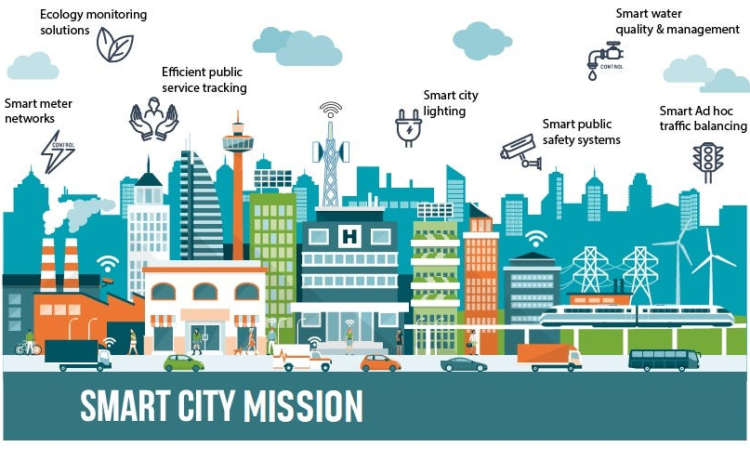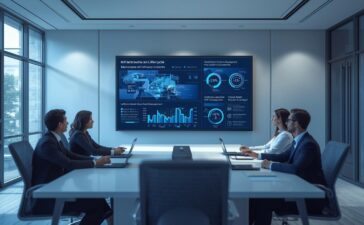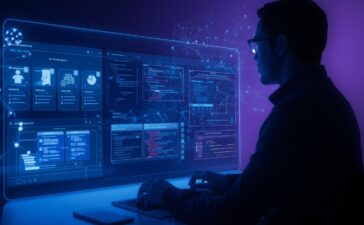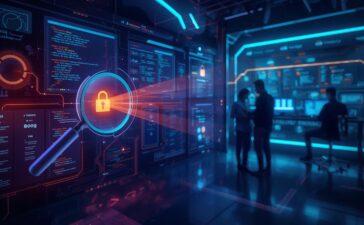Introduction
In the era of rapid urbanization and technological advancement, the concept of smart cities has emerged as a revolutionary approach to urban development. Smart cities leverage cutting-edge technologies to create more efficient, sustainable, and livable urban environments. RPS Real Estate Group is at the forefront of this transformation, integrating advanced technologies into their urban infrastructure, particularly through their luxury flats in Faridabad for sale. This article explores how it contributes to the development of smart cities and the benefits this brings to residents and the environment.
Understanding Smart Cities
Definition and Components
A smart city uses information and communication technologies (ICT) to enhance the quality, performance, and interactivity of urban services, reduce costs and resource consumption, and improve contact between citizens and government. Key components of smart cities include:
- Smart Infrastructure: Intelligent systems for managing transportation, energy, water, and waste.
- Smart Governance: Enhanced civic participation and transparent governance through digital platforms.
- Smart Economy: Fostering innovation, entrepreneurship, and competitiveness.
- Smart Environment: Sustainable practices and efficient resource management.
- Smart Living: Improved quality of life through smart healthcare, education, and public safety.
- Smart Mobility: Efficient and sustainable transportation systems.
Technology Integration in Urban Infrastructure
Internet of Things (IoT)
IoT plays a crucial role in smart cities by connecting various devices and systems to collect and analyze data. In luxury apartments in Faridabad, IoT is used to:
- Monitor Energy Consumption: Smart meters and sensors track energy use in real-time, helping residents reduce consumption and costs.
- Enhance Security: IoT-enabled security systems, including cameras and sensors, provide enhanced safety for residents.
- Improve Comfort: Smart thermostats and lighting systems automatically adjust settings for optimal comfort and energy efficiency.
Big Data and Analytics
Big data analytics help city planners and managers make informed decisions by analyzing vast amounts of data. Applications include:
- Urban Planning: Data-driven insights assist in designing more efficient and sustainable urban layouts.
- Traffic Management: Real-time traffic data helps optimize traffic flow and reduce congestion.
- Resource Management: Analytics track the usage of water, electricity, and other resources, promoting efficient management.
Artificial Intelligence (AI)
AI enhances the functionality of smart city systems by providing predictive insights and automation. In luxury apartments, AI is used for:
- Predictive Maintenance: AI predicts when maintenance is needed, preventing costly breakdowns.
- Personalized Services: AI-driven systems provide personalized recommendations for residents, from entertainment to energy-saving tips.
- Enhanced Security: AI analyzes security data to identify and respond to potential threats.
Renewable Energy Integration
Smart cities prioritize renewable energy sources to reduce their environmental footprint. The Group incorporates:
- Solar Panels: Providing a sustainable energy source for luxury apartments.
- Energy Storage Systems: Storing excess energy for later use, ensuring a reliable power supply.
- Smart Grids: Efficiently distributing electricity and integrating renewable energy sources.
Sustainable Urban Development
Green Buildings
Green buildings are designed to be environmentally responsible and resource-efficient. Features include:
- Energy Efficiency: High-efficiency HVAC systems, insulation, and energy-efficient windows reduce energy consumption.
- Water Conservation: Low-flow fixtures, rainwater harvesting, and greywater recycling minimize water use.
- Sustainable Materials: Use of recycled and locally sourced materials reduces environmental impact.
Smart Transportation
Efficient transportation systems are crucial for smart cities. It promotes:
- Public Transportation: Integration with smart public transit systems for efficient and sustainable commuting.
- Electric Vehicles (EVs): Charging stations for EVs encourage the use of clean transportation.
- Bike and Car Sharing: Smart bike and car-sharing programs reduce traffic and pollution.
Waste Management
Smart waste management systems improve efficiency and reduce environmental impact. Features include:
- Smart Bins: Equipped with sensors to monitor fill levels and optimize collection routes.
- Recycling Programs: Encouraging recycling through smart sorting and collection systems.
- Waste-to-Energy: Converting waste into renewable energy sources.
Enhancing Quality of Life
Smart Healthcare
Smart healthcare systems improve access to medical services and enhance patient care. Features include:
- Telemedicine: Providing remote consultations and monitoring for residents.
- Health Monitoring: Wearable devices track health metrics and alert users to potential issues.
- Smart Hospitals: Advanced medical facilities equipped with the latest technology.
Smart Education
Smart education systems provide innovative learning opportunities. Features include:
- E-Learning Platforms: Offering online courses and resources for continuous learning.
- Smart Classrooms: Equipped with interactive whiteboards and digital tools to enhance learning experiences.
- Community Learning Centers: Providing spaces for workshops, seminars, and collaborative learning.
Public Safety
Enhancing public safety through smart technologies is a priority. Features include:
- Smart Surveillance: Advanced CCTV systems with AI analytics for real-time monitoring and threat detection.
- Emergency Response: Integrated systems for rapid response to emergencies, including natural disasters and medical crises.
- Community Policing: Digital platforms for reporting issues and coordinating with local law enforcement.
Case Study: Luxury Apartments in Faridabad
Integration of Smart Technologies
Luxury apartments in Faridabad exemplify the integration of smart city technologies. These residences feature:
- Smart Home Systems: Allowing residents to control lighting, climate, and security from their smartphones.
- Energy Management: Solar panels and energy-efficient systems reduce utility bills and environmental impact.
- Water Management: Advanced systems for water conservation and recycling ensure sustainable use of resources.
Community Benefits
The integration of smart technologies in these luxury apartments enhances the quality of life for residents. Benefits include:
- Convenience: Automation and smart home systems make daily tasks easier and more efficient.
- Security: Advanced security systems provide peace of mind for residents.
- Sustainability: Energy and water-efficient systems reduce the environmental footprint and promote sustainable living.
Future Prospects
As technology continues to evolve, the scope of smart cities will expand. The Group is committed to staying at the forefront of this movement, continually integrating the latest innovations into their projects to create more sustainable and livable urban environments.
Conclusion
Smart cities represent the future of urban development, integrating advanced technologies to create more efficient, sustainable, and livable environments. Through the development of luxury flats in Faridabad, RPS Real Estate Group is leading the way in this transformation. By incorporating smart infrastructure, sustainable practices, and innovative technologies, they are not only enhancing the quality of life for residents but also contributing to a more sustainable future. As the concept of smart cities continues to evolve, the commitment to integrating technology into urban infrastructure will play a crucial role in building the cities of tomorrow.





